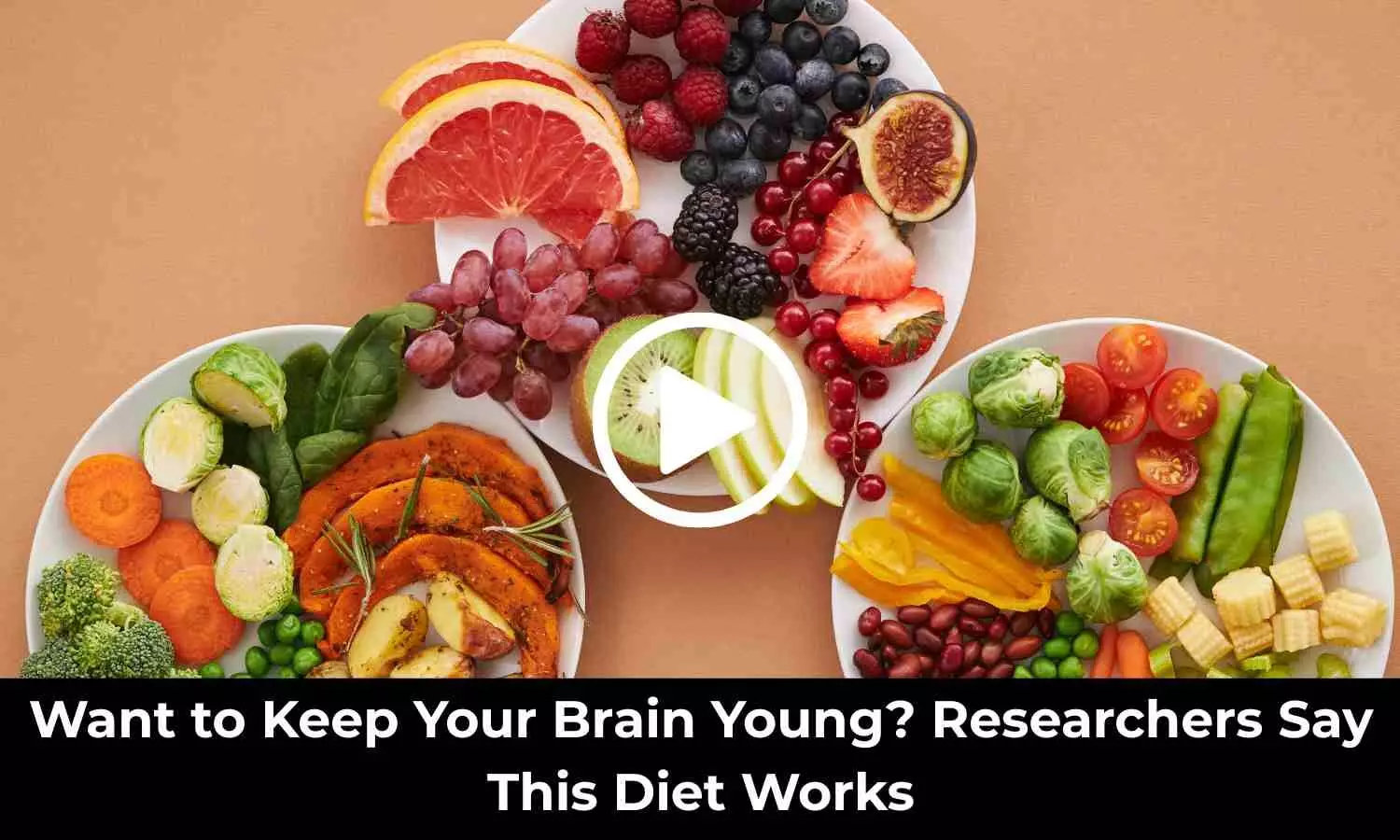Want to Keep Your Brain Young? Researchers Say This Diet Works
- byDoctor News Daily Team
- 24 September, 2025
- 0 Comments
- 0 Mins

A Green-Mediterranean diet-rich in green tea and the aquatic plant Mankai-may slow brain aging, according to new research published in the journal Clinical Nutrition. The study offers new insight into how dietary patterns can impact long-termbrain health. Neurological conditionslike mild cognitive impairment andAlzheimer’s diseaseare often associated with an elevated "brain age gap," meaning the brain appears older than a person's actual age. To examine the role ofdietin brain aging, researchers analyzed data from approximately 300 participants in the DIRECT PLUS trial—one of the most extensive and long-term clinical studies exploring the relationship between nutrition and cognitive health. Over 18 months, participants followed one of three diets: a standard healthy diet, a traditional calorie-restricted Mediterranean diet, and a green-Mediterranean diet that added daily intake of green tea and Mankai, a protein-rich aquatic plant. The Mediterranean-style diets were low in simple carbohydrates, high in vegetables, and replaced red meat with poultry and fish. The researchers measured protein levels in the participants’ blood and discovered that elevated levels of specific proteins were linked to accelerated brain aging. Importantly, these proteins decreased significantly in individuals who adhered to the green-Mediterranean diet. The study suggests that the anti-inflammatory compounds found in green tea and Mankai may play a protective role in brain health. “Studying the circulating proteins in blood allows us to observe, in a real-life setting, how the brain’s aging processes are influenced by lifestyle and dietary changes,” said Anat Meir, postdoctoral research fellow at Harvard Chan School, who co-led the study. “This approach gives us a dynamic window into brain health, helping to reveal biological changes long before symptoms may appear. By mapping these protein signatures, we gain powerful new insight into how interventions, such as diet, may help preserve cognitive function as we age.” The findings build on growing evidence that personalized nutrition can play a significant role in maintaining cognitive health, particularly as the global population continues to age. Reference:https://hsph.harvard.edu/news/green-mediterranean-diet-may-slow-brain-aging/
Disclaimer: This website is designed for healthcare professionals and serves solely for informational purposes.
The content provided should not be interpreted as medical advice, diagnosis, treatment recommendations, prescriptions, or endorsements of specific medical practices. It is not a replacement for professional medical consultation or the expertise of a licensed healthcare provider.
Given the ever-evolving nature of medical science, we strive to keep our information accurate and up to date. However, we do not guarantee the completeness or accuracy of the content.
If you come across any inconsistencies, please reach out to us at
admin@doctornewsdaily.com.
We do not support or endorse medical opinions, treatments, or recommendations that contradict the advice of qualified healthcare professionals.
By using this website, you agree to our
Terms of Use,
Privacy Policy, and
Advertisement Policy.
For further details, please review our
Full Disclaimer.
Recent News
Air Pollution May Slow Infant Brain Development: S...
- 23 October, 2025
AI Outperforms Traditional Tools in Predicting Hea...
- 23 October, 2025
Nearly Half of Acute Pancreatitis Patients Develop...
- 23 October, 2025
Can Fat You Can’t See Put You at Risk for Stroke a...
- 23 October, 2025
Daily Newsletter
Get all the top stories from Blogs to keep track.


0 Comments
Post a comment
No comments yet. Be the first to comment!